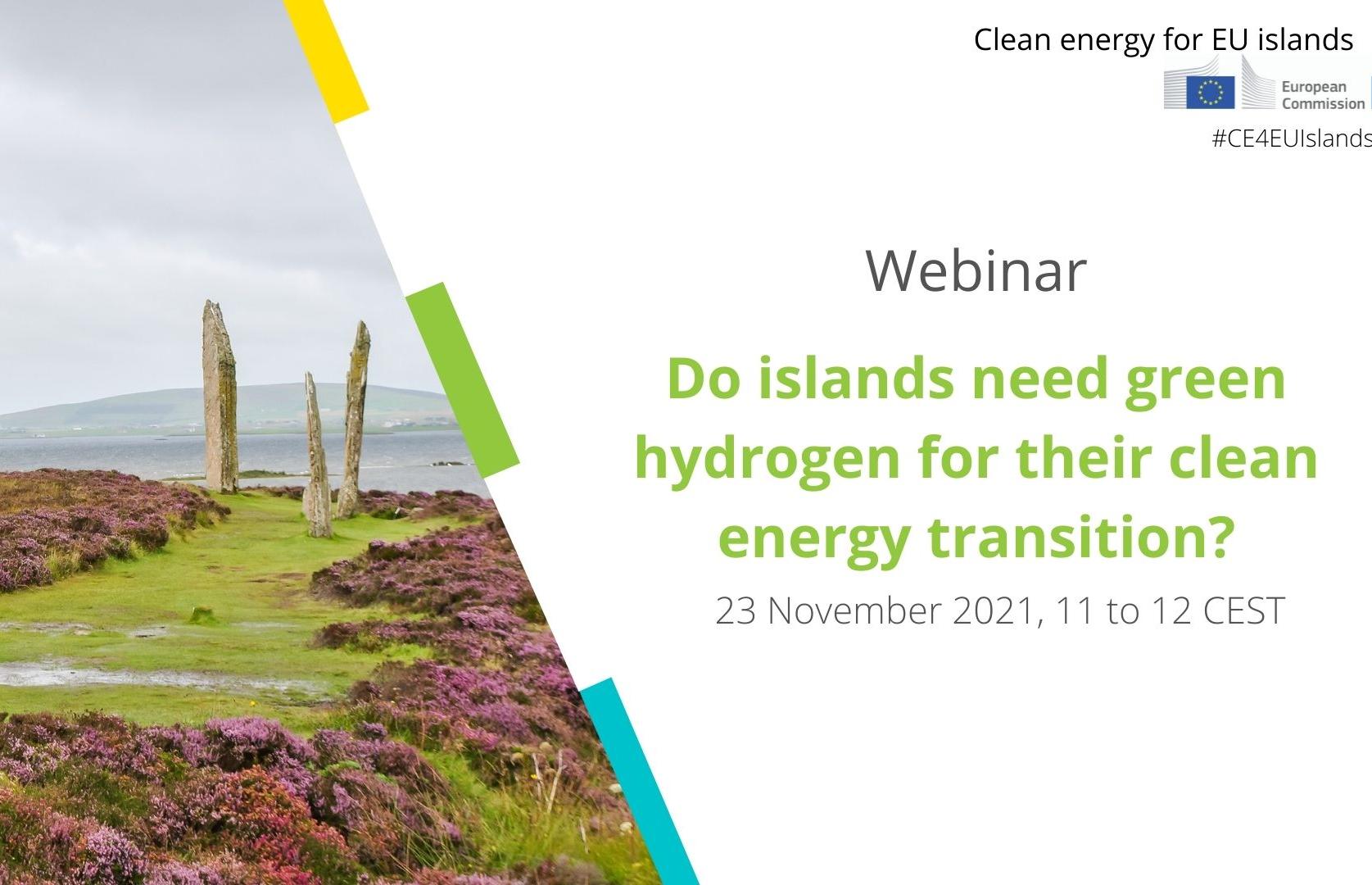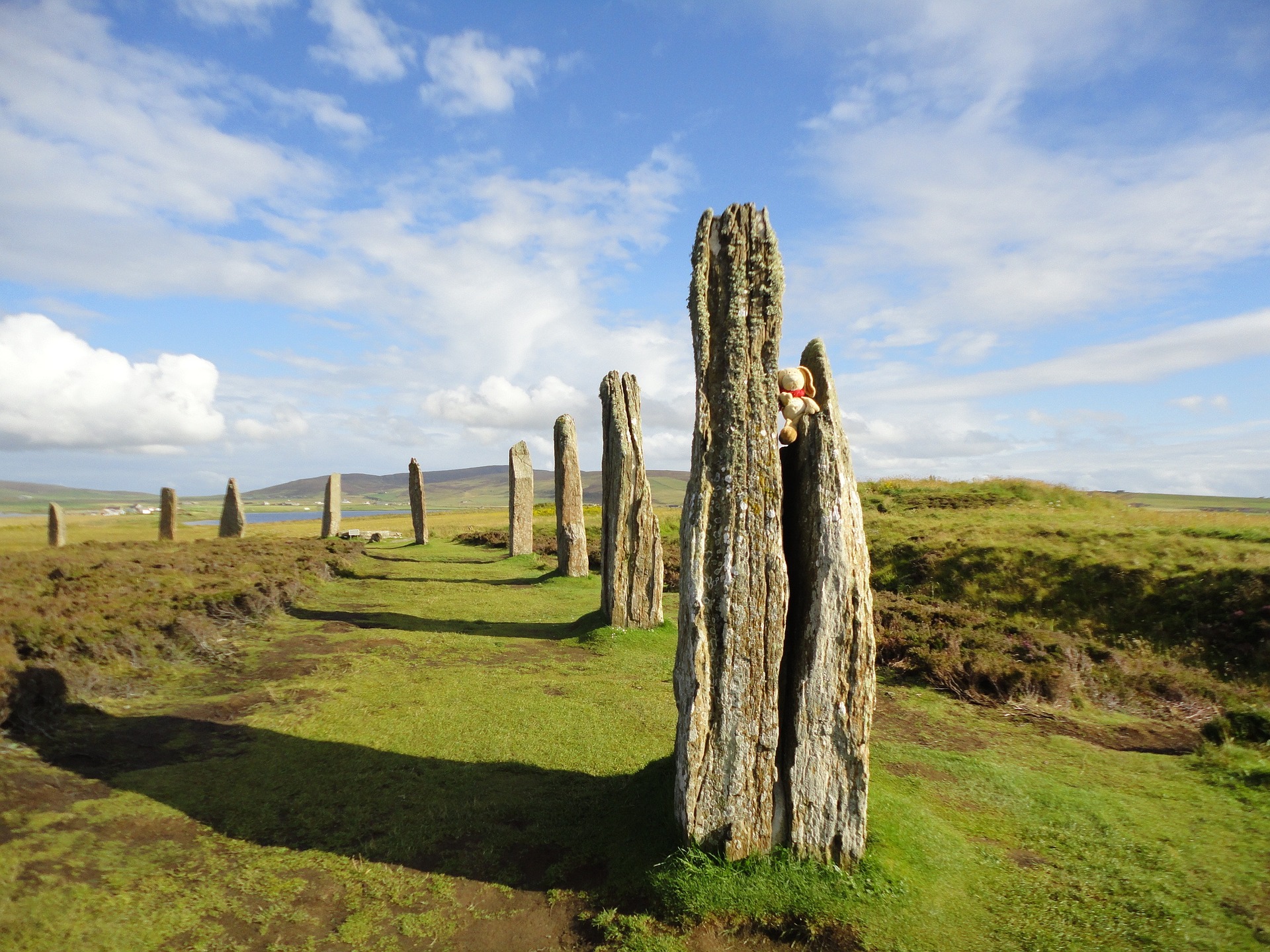
The archipelago of Orkney enchants its visitors and residents because of its open landscape and people, its history, music, food and increasingly because of its ability to show how the future can be. With around 22,000 inhabitants, the community is big enough to have all you need for modern life, but small enough to feel you can meaningfully contribute; and Orcadians are very willing to listen to new ideas and help make them work.
A vision of a clean energy future
The last energy audit, done in 2009, showed the following energy consumption for the Orkney archipelago (757GWh overall):
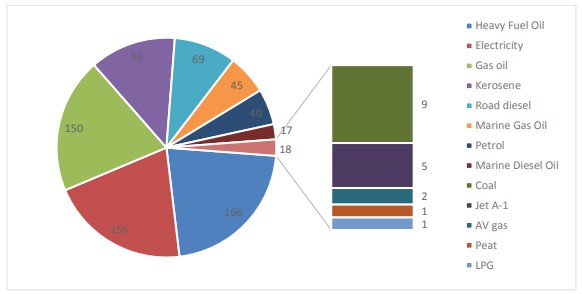
Although the Orkney islands have produced over 100% of their electricity needs from renewables every year since 2013, over 75% of the islands’ energy still comes from fossil fuels.
The estimated energy bill for the islands is 75 million pounds per year, which is nearly £3,400 per person per year. But the real costs lie in the damage caused by carbon emissions – and the community’s failure to make the necessary changes fast enough is costing the island jobs and export opportunities.
How Orkney built a movement for the clean energy transition
A combination of the need to stimulate an otherwise failing economy and the recognition that the world must decarbonise provided the initial spur for the energy transition on Orkney. It came at a time when renewables were beginning to become a reality, wind turbines were becoming available and wave and tidal energy looked possible.
The coming together of several visionary people in 2000 gave rise to the formation of the Orkney Renewable Energy Forum (OREF). Its aims and objectives are to promote renewable energy and energy efficiency, debate best and most sustainable options for increasing renewable energy and energy efficiency, facilitate research and development, disseminate information, lobby on strategic issues, and act as a consultative body on issues related to connecting Orkney to renewable energy markets. By providing a sense of identity, OREF became a rallying point and brought ideas from the community out and gave substance to otherwise insubstantial ideas. It found strong support in the local council, which has a history of seeing economic development thrive through energy projects.
The secret of Orkney’s exemplary energy transition efforts is the heavy involvement of its local community. Most of the major islands now have their own large wind turbines, and there are over 1000 domestic wind or solar PV installations in the isles. That means the Orkney islands now have one in ten of the population making their own power. The wind turbines produce an overall total of about 70MW. The isles have a smart grid that controls renewable energy generation to match demand.
With over 200 electric vehicles on the islands, Orkney now has the highest percentage of electric car fleets in Scotland. Businesses are trading on the knowledge developed in the renewables space ranging from wind to wave and tidal energy, and Orkney has become home to the world leading marine energy test centre.
Orkney has some domestic batteries for energy storage, a technology they are planning to roll out further.
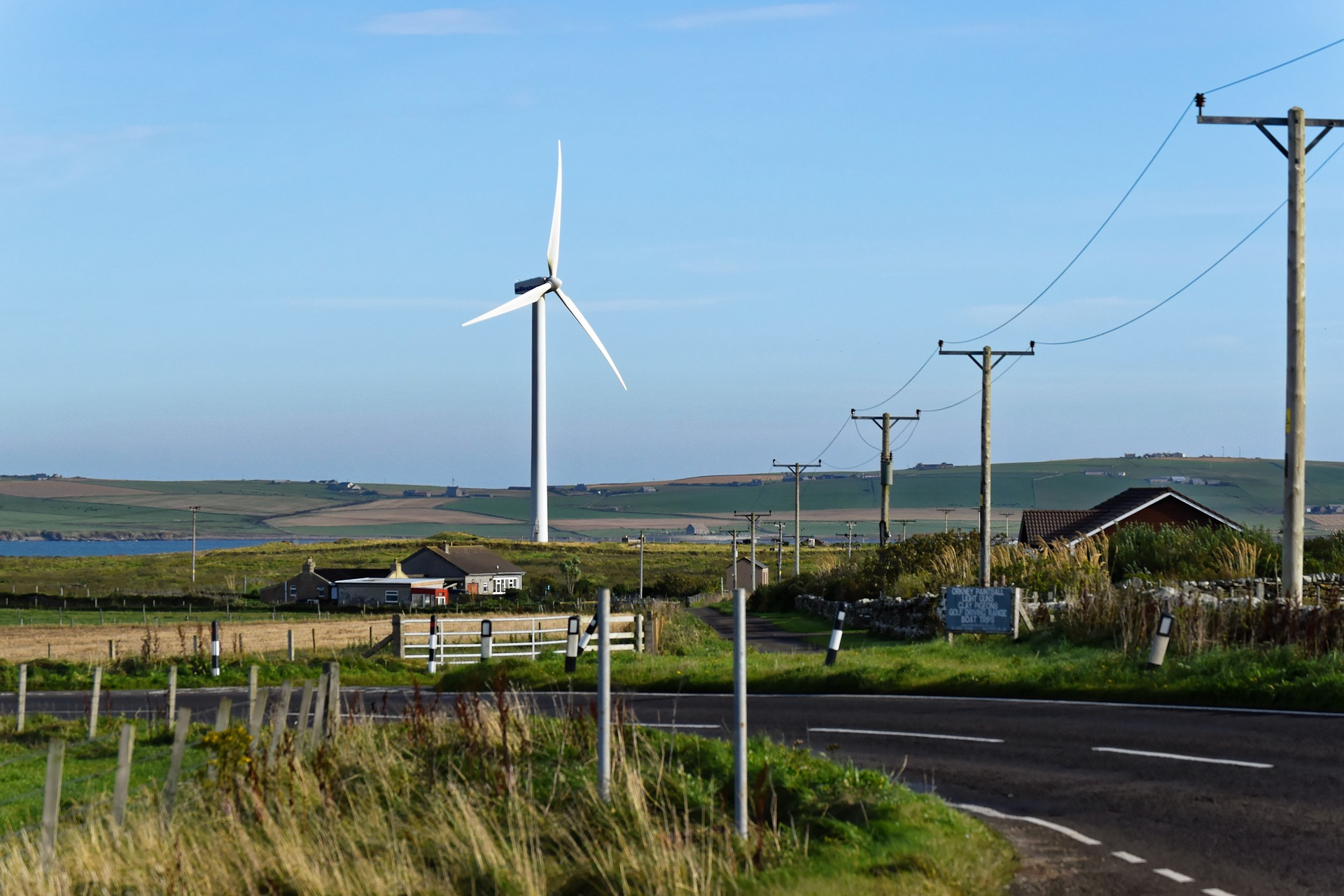
Moving forward, Orkney is looking to deepen its impact to make the transition irreversible. This also includes the engagement with health services, as well as retrofitting of property in a more concerted manner. The transition team further plans to reach out to vehicle suppliers to favor vehicles fuelled by renewable or low-carbon energy resources, and to engage with farmers to look into possibilities to reduce emissions in the agricultural sector. In the longer term, the community also aims to expand its transition activities to ferries and aircrafts.
Energy efficiency – a crucial area of improvement for Orkney
Some of Orkney’s new buildings are energy efficient, most are not. There are a lot of old buildings on the islands and many were put up before insulation was even a concept. Retrofitting these buildings is a big challenge, and the community expects that some of the housing put up in the 1940’s and 1950’s will need to be demolished and re-built. First efforts in this direction have already taken place: The Orkney Council is retrofitting its housing stock and providing assistance to the public, and one of the local builders is producing highly energy efficient housing. For new buildings, heat pumps have become the most common form of heating, and the community is looking to retrofit existing houses.
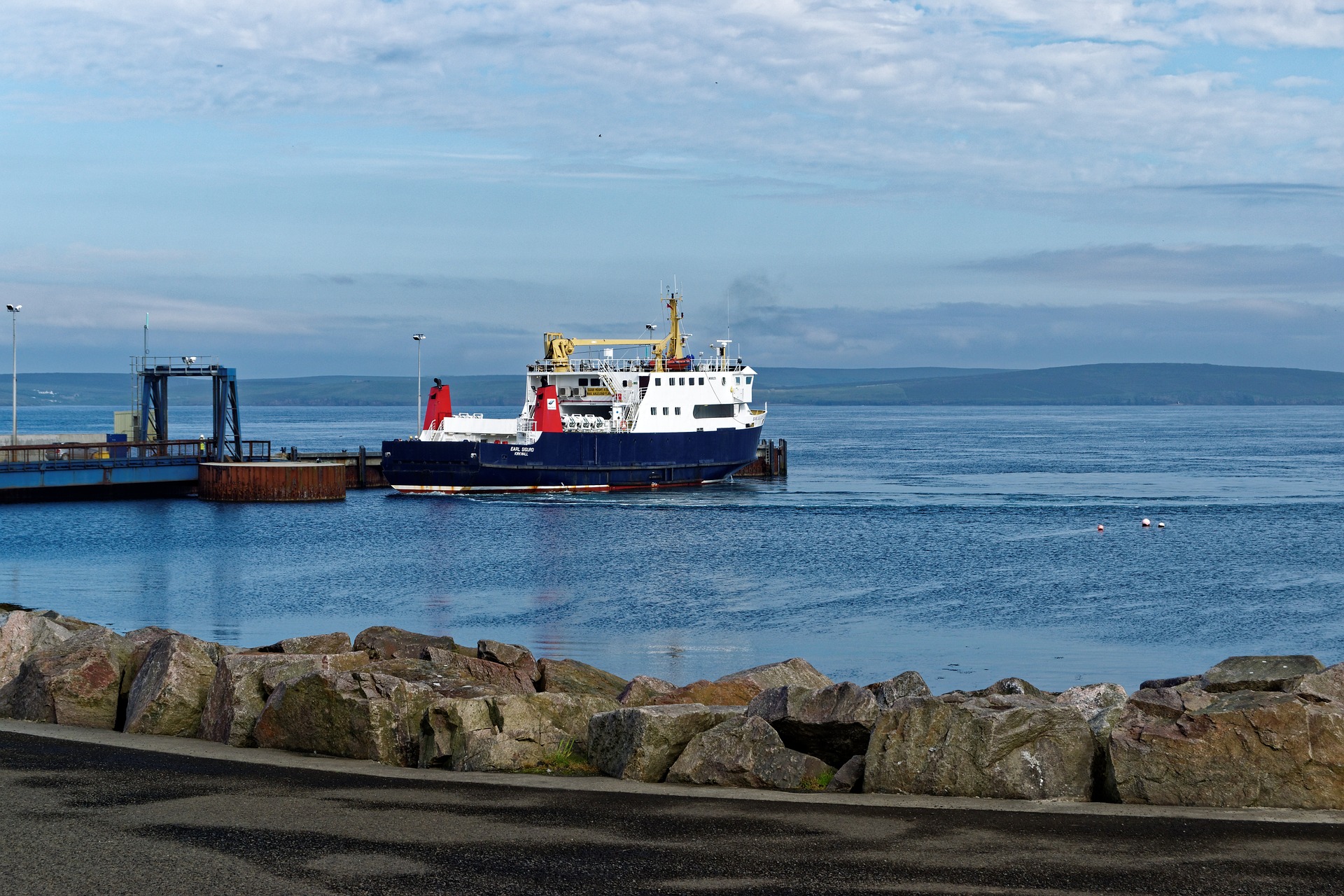
There are four ferry routes to Orkney and five air routes. Within the islands (around 17 are inhabited) there are 9 ferries that service the isles. Some isles get several ferry sailings a day, some only every few days. The ferries within the isles and to the county use as much fuel as heating all the islands’ houses – another area with room for improvement and modernisation.
The Orkney islands have already started to work on this, and are looking to replace the old ferries with hydrogen powered vessels. Some of their ferries are already powered with hydrogen when they tie up at night. The first hydrogen afloat on a ferry will happen this year when the community will provide auxiliary power to a ferry while it is underway. The hydrogen is made from spare wind and tidal energy generated on the islands.
What are the challenges of such a progressive archipelago?
The most important challenge Orkney cites when it comes to the clean energy transition is time.
Time when it comes to how quickly the transition has to happen for the world to remain within the 1.5 degree window cited by climate science.
But also time when it comes to the ability to involve more people in the transition on a full-time basis. Further challenges include communicating the vision and progress on Orkney’s clean energy transition effectively both to locals and visitors, for instance through an information and visitor experience centre.
The residents of the Orkney islands are aware that the expansion of renewables needs to happen in a socially and environmentally acceptable way, taking into account the needs of both people and wildlife on the island. Furthermore, with the rapid expansion of renewables in the past years, the grid on Orkney is now unable to transmit and distribute all the energy produced on the islands. This has on the one hand slowed down further deployment of renewables, but on the other hand spurred development in other fuel vectors, such as hydrogen and the electrification of transport.
Organisations currently involved in Orkney’s clean energy transition
Orkney Renewable Energy Forum
Aquatera
The European Marine Energy Centre Ltd
Orkney Islands Council
Community Energy Scotland
Solo Energy Ltd
Surf'n'Turf
THAW Orkney

